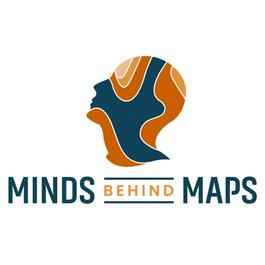
Minds Behind Maps
Maps Are Everywhere. These are conversations with those building them.
Show episodes
On every Minds Behind Maps episode I ask guests for books they've read they think are worth sharing. This time I'm sharing with you the books I read & recommend from my 2024 reading.Shownotes Note: Links to books are Amazon Affiliate links. I earn a small commission if you buy any of these books.Utopia For Realists (Am

How Bloomberg's Data Scientists use Satellite Images for Reporting: Krishna Karra - MBM78
Krishna Karra is a data scientist & report for Bloomberg, having used machine learning & satellite images for reporting. Recent stories from him & his team include mapping refugee camps in Rafah & exposing illegal ship oil transfers in the middle of the Ocean.Sponsor: Beemaps by Hivemapper Get access to high quality, f
Phil Edwards is a video producer who worked at Vox for nearly 10 years, and now runs his own Youtube channel exploring the history of businesses, and lately has been using more and more maps. We go over one of his latest videos, “The Secret Economics of Google Street View” as a case study of how Phil thinks about maps

What Hyperspectral constellations have to offer: Pixxel’s example - Awais Ahmed #MBM76
Awais Ahmed is the co-founder & CEO of Pixxel, a company building a constellation of hyperspectral imaging satellites. Unlike “traditional” cameras, these satellites can see across hundreds of bands, opening up a lot more applications. We talk about the engineering -and funding- required to pull this off and how Awais

The Ex-Uber Data Scientist Who wants to simplify Data Science with Serverless Computing: Sina Kashuk
Sina Kashuk is the co-founder & CEO of Fused, who wants to make iterating & deploying in Python faster with serverless computing. We break down what that actually means, why it matters and what data science workflows could look like over the next few years. This also isn’t Sina’s first company, a few years ago he start
Andrew Peterson is the Co-Founder & CEO of Array Labs, with a simple mission: Mapping the whole world in 3D, at 20cm in near real time. We peel the layers as to what it takes to get there: the engineering that’s required, how to build a constellation to do that, how you fund such a project. Sponsor: OpenCage Use OpenCa